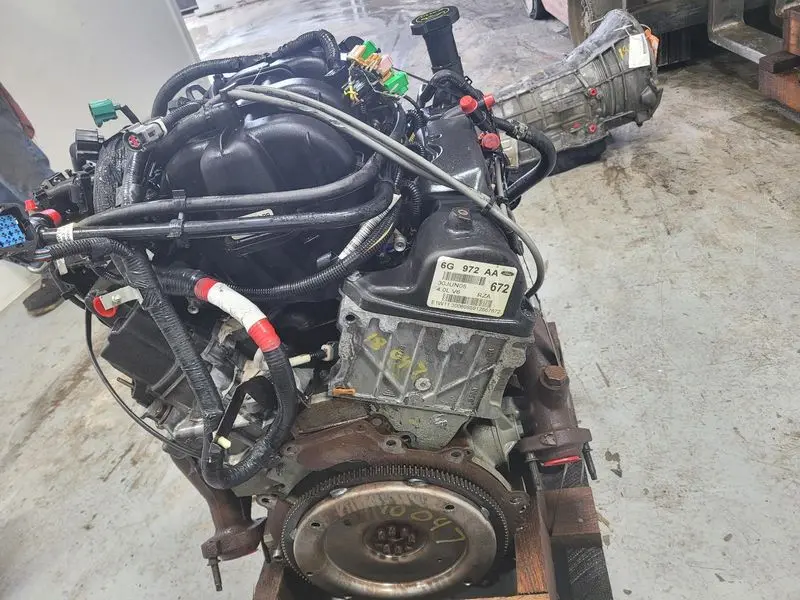Get to Know the Power and Reliability of the 2.2 Ford Ranger Engine for Any Job
Get to Know the Power and Reliability of the 2.2 Ford Ranger Engine for Any Job
Blog Article
What Makes a Car Engine Run Efficiently: Top Tips for Optimal Care
The smooth operation of an automobile engine is basic to both performance and longevity, making optimum treatment an important responsibility for vehicle proprietors. Secret methods, such as regular oil adjustments, preserving coolant degrees, and monitoring air filters, are vital yet often ignored. In addition, the significance of checking trigger plugs and making certain appropriate tire pressure can not be underrated. Understanding exactly how these aspects interconnect can improve not just the efficiency of your lorry yet likewise your general driving experience. What particular steps should you prioritize to ensure your engine stays in peak condition?
Routine Oil Changes
One of one of the most essential elements of automobile maintenance is ensuring your engine gets normal oil changes. Engine oil lubricates internal parts, reduces rubbing, and assists keep optimum operating temperatures. Gradually, oil degrades as a result of heat, impurities, and the all-natural results of combustion, causing lowered effectiveness and possible engine damage.
Many makers recommend altering the oil every 5,000 to 7,500 miles, yet this interval can differ based upon driving conditions and oil kind. Artificial oils may permit for longer periods in between modifications. Normal oil adjustments not just boost engine performance yet also enhance gas performance, as tidy oil promotes smoother operation.
Overlooking oil changes can cause sludge buildup, which harms blood circulation and can lead to severe engine problems. It is vital to inspect oil degrees consistently and keep an eye on for any type of unusual modifications in shade or consistency, which might indicate contamination or destruction.

Maintaining Coolant Degrees
Maintaining proper coolant degrees is important for preventing engine overheating and ensuring optimal performance. The coolant, typically a combination of water and antifreeze, circulates through the engine, absorbing warmth and avoiding thermal stress. Inadequate coolant can cause increased engine temperature levels, which might create extreme damages and even overall engine failing.
To preserve ideal coolant degrees, frequently examine the coolant tank, usually located in the engine bay. Ensure the coolant is filled to the recommended mark, as suggested in your automobile's owner guidebook. It is advisable to inspect the degrees at least once a month or soon trips, particularly during extreme climate conditions.
If you discover that the coolant degree is regularly low, there may be a leak in the cooling system, which must be resolved quickly to stop more issues. 2.2 ford ranger engine. Discover More Here In addition, purging the coolant system every 2 to 3 years can help eliminate any type of gathered particles and ensure efficient warmth exchange
Monitoring Air Filters
It is recommended to inspect the air filter every 12,000 to 15,000 miles, or a lot more regularly if driving in dirty or negative problems. An easy visual evaluation can frequently expose whether the filter is filthy or harmed. If the filter appears stained or has noticeable dust accumulation, it ought to be changed promptly.
Making use of a premium air filter created for your specific car design can even more improve engine performance. Additionally, some vehicles may benefit from recyclable filters that can be cleansed and reinstalled, giving a environmentally friendly and economical alternative.
Inspecting Flicker Plugs
Flicker plugs are vital elements of a lorry's ignition system, directly affecting engine efficiency and efficiency. They create the stimulate that stirs up the air-fuel mixture in the burning chamber, promoting the engine's power generation. Regular inspection of spark plugs is critical for preserving ideal engine function and preventing prospective concerns.
Dark residue or oil down payments can suggest incorrect burning, while a white or blistered appearance might suggest overheating. Both problems require instant interest to stop additional engine damages.
It's advisable to evaluate ignition system every 30,000 miles, or as recommended in your vehicle's owner handbook. Furthermore, think about replacing them according to the producer's standards, as old or worn ignition system can result in misfires, minimized gas effectiveness, and boosted emissions.
Surveillance Tire Pressure
Under-inflated tires can lead to lowered gas efficiency, enhanced tire wear, and compromised handling. Regular monitoring of tire stress is essential for optimal automobile operation.
Tire pressure should be examined a minimum of when a month and previously lengthy trips. Use a trustworthy tire pressure gauge click to read to gauge the pressure when the tires are cold, preferably prior to the automobile has been driven for a minimum of 3 hours. Refer check this to the vehicle's proprietor guidebook or the placard located on the vehicle driver's side door jamb for the producer's advised pressure degrees.
It is important to note that tire pressure can fluctuate with adjustments in temperature level; a decrease of 10 ° F can result in a 1-2 psi reduction in pressure. In addition, aesthetically check tires for any kind of signs of wear or damages throughout your monitoring routine. Maintaining correct tire stress not only enhances vehicle safety and security however likewise enhances gas efficiency and extends tire life, ultimately contributing to a smoother engine performance.
Conclusion
In final thought, preserving a vehicle engine's smooth procedure needs persistent attention to several essential factors. Eventually, an aggressive method to engine treatment is crucial for ensuring reliability and capability over time.
One of the most important elements of cars and truck upkeep is ensuring your engine obtains regular oil adjustments. Engine oil lubes interior components, decreases rubbing, and helps keep optimum operating temperatures. Normal oil adjustments not only enhance engine efficiency however also enhance gas effectiveness, as clean oil advertises smoother procedure.
Inadequate coolant can lead to raised engine temperature levels, which might cause extreme damage or even overall engine failing.

Report this page